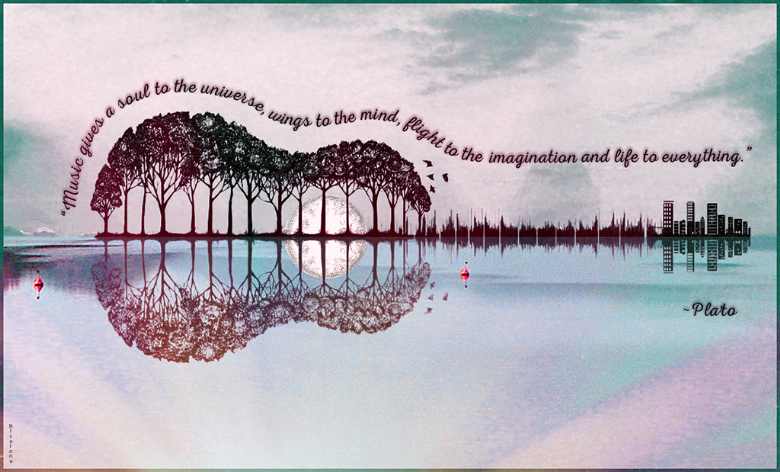Music

What do we want our Music curriculum to achieve?
At St Peter’s, we strive for children to create and explore music with imagination and purpose; to listen carefully, experiment boldly, and develop their own musical voice. We encourage pupils to think critically and reflectively as they compose, perform, and evaluate music—making thoughtful changes and solving musical challenges along the way.
We aim for music to be a challenging and rewarding subject that encourages originality. Rather than simply copying, we want children to interpret, respond to, and make music that carries their own creative mark. We foster a culture where pupils can take risks in their musical learning, developing ideas through careful listening, repetition, and refinement—creating powerful performances and compositions with real meaning.
At St Peter’s, we also aim to instil a love of music as one of the most powerful forms of human expression. Music is for everyone, and we believe every child should have the opportunity to sing, play, compose, and appreciate a rich variety of musical styles from across cultures and times. Music connects us, supports well-being, and brings joy.
By carefully planning our music curriculum, our intention is for all children to enjoy and participate in a wide variety of musical experiences. Through this, we aim to inspire future performers, composers, sound engineers and music lovers. The stories behind songs, instruments and musical movements also provide a meaningful context to support children’s wider learning—encouraging curiosity, creativity, and confidence in speaking, reading and writing.
Why is Music important to us?
We live in a world shaped by sound and expression. Teaching music equips children with the mindset and skills to understand, appreciate, and contribute to the rich and diverse world of musical culture. It lays the foundation for essential 21st-century skills and nurtures curiosity, creativity, perseverance and a deep sense of capability.
Music is not just about performing – it’s about listening, responding, exploring, composing, and refining. Music encourages children to think imaginatively, express themselves with confidence, and connect emotionally with the world around them. Through composing and performing, they learn to shape sound purposefully, developing key skills that are transferable across many areas—from communication and collaboration to discipline and emotional intelligence.
When children engage in music-making, they learn to plan, practise, evaluate and improve their work. They gain hands-on experience with instruments, rhythm, notation, and digital tools. Music draws on knowledge from subjects like maths, language and history and often involves teamwork—helping children to listen closely, share ideas and contribute positively to a group.
Creating and performing music in a take-care way gives children a strong sense of identity and achievement. It deepens their emotional awareness, builds resilience, and offers them a powerful outlet for self-expression—core to their personal development and central to our purpose at St Peter’s.
How do we develop knowledge and skills in Music?
At St Peter’s, developing knowledge and skills in music involves a rich combination of listening, performing, composing, and understanding musical concepts. Children listen to a wide range of musical styles and genres, learning to identify instruments, rhythms, dynamics, and moods, while developing their ability to listen critically and discuss what they hear. They build confidence and control through singing songs and chants and playing classroom instruments such as percussion and recorders, learning to perform both individually and as part of a group, which also fosters teamwork and attentive listening. Alongside performing, pupils explore creativity by improvising and composing their own musical ideas, experimenting with sounds, rhythms, and melodies, and learning to structure and record their compositions using simple notation or symbols. Throughout this process, children acquire essential musical knowledge and vocabulary, including an understanding of notes, scales, rhythm values, tempo, and dynamics, which helps them grasp how music is constructed and communicated. Music education also connects with other subjects, such as history, mathematics, and literacy, as pupils explore music from different cultures and time periods, recognise patterns, and engage with storytelling through lyrics. Regular practice and opportunities to perform in seasonal concerts, shows or assemblies help children build confidence, appreciate one another, take pride in their work, and develop strong communication skills. This approach ensures that children develop a deep, practical, and meaningful understanding of music throughout their primary education.
How do we use assessment in Music?
At St Peter’s, assessment is used to understand each child’s progress, strengths, and areas for development in skills like singing, playing instruments, listening, and composing. Teachers observe and listen to pupils during lessons, noting how well they perform tasks such as keeping rhythm, pitching notes accurately, or responding creatively to musical challenges. Assessment is often ongoing and informal, using questioning, discussions, and practical activities to gauge understanding and encourage reflection. This information helps teachers tailor future lessons to support individual needs, set appropriate challenges, and celebrate achievements. Additionally, assessment in music supports the development of wider skills such as confidence, teamwork, and communication, ensuring a well-rounded musical education.
How do we include and challenge all children in Music?
At St Peter’s, it is essential that all children access and learn effectively in our music lessons. We do this by setting up open-ended, inclusive challenges that respond to diverse needs and remove barriers to learning and assessment. Teachers use a range of adaptive strategies, including modelled demonstrations, visual aids, simplified instructions, and the use of actions or signing to support understanding. Adaptations in music may involve graphic notation, colour-coded instruments, and alternative ways of engaging with sound and rhythm—such as feeling vibrations, using visual prompts, or integrating technology.
For children with hearing impairments, tools such as mini microphones are used to amplify sound and enhance clarity. We also ensure music is experienced physically through movement and the use of tuned and untuned percussion instruments, allowing children to feel the beat and pitch. To support understanding, we provide word banks, visual symbols, and pre-teach key vocabulary. Repetition and regular retrieval activities help pupils with SEND secure key musical concepts and skills over time.
All children are appropriately challenged through opportunities to deepen their musical thinking, refine their performance, and engage in composition and improvisation tasks that stretch creativity and independence. Our music curriculum reflects a wide range of cultures and traditions, broadening children’s understanding, promoting respect for diversity, and developing global awareness. Music is also a powerful context for exploring social and environmental themes, including sustainability. In classrooms where all ideas are valued and mistakes are part of the learning journey, children grow in confidence, creativity, and develop a deep sense of care in how they listen, perform, and compose.
Music Development Plan 2024-2025
Rationale for Music
At St. Peter’s we are committed to ensuring the effective delivery of a broad, enriched music curriculum that is accessible to all our children. Music is a universal language that embodies one of the highest forms of creativity. From EYFS to Year 6, we believe that a high-quality music education should engage and inspire our children to develop a love of music and their talent as musicians.
Curriculum Overview - 2 Year Cycle
Useful Links:

